That window, which has stayed open for nearly five years, with amazing good will from the Afghans, is threatening to close unless the world wakes up and deals with the crisis.
AHMED RASHIDGeorge W. Bush and Tony Blair made the promise that they would not tolerate failed states because they could become a haven for terrorists. And today? The number increases.
More Ahmed Rashid Quotes
-





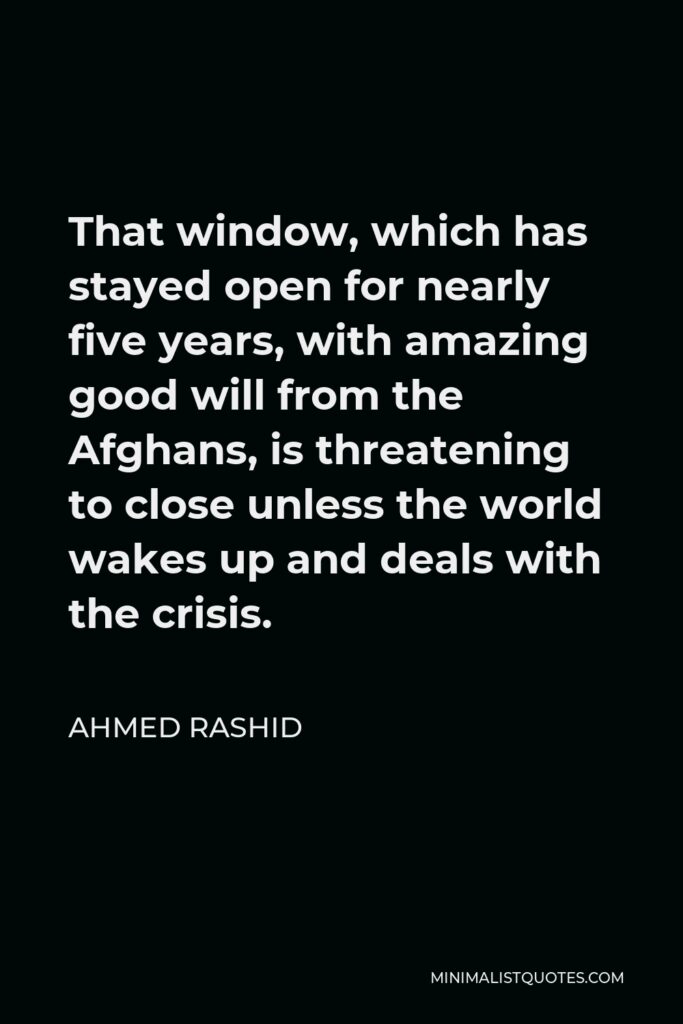

-





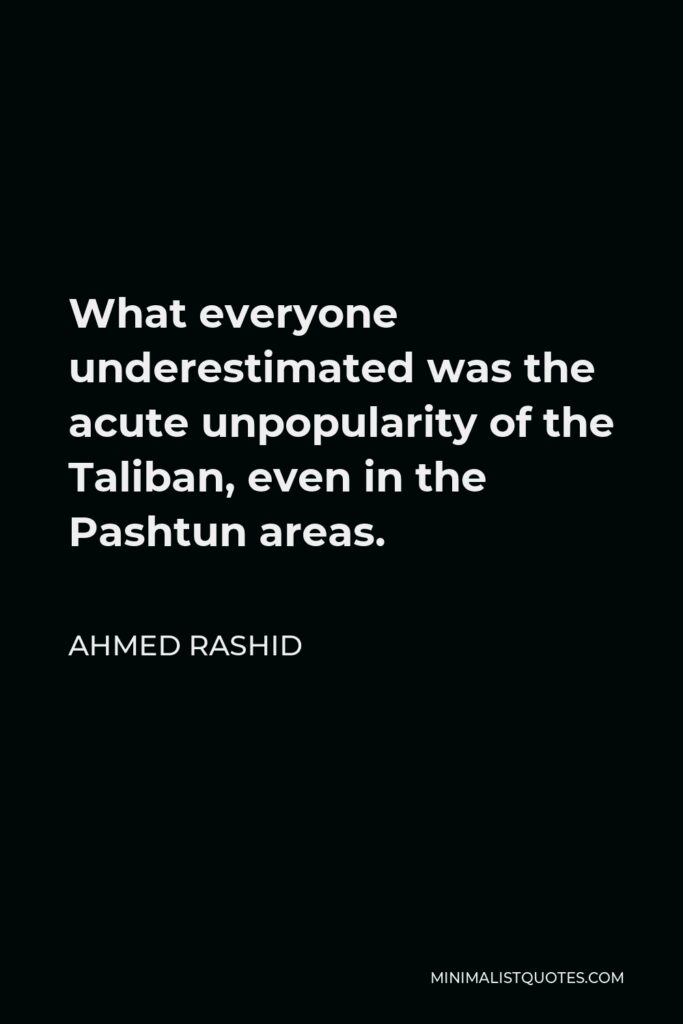

What everyone underestimated was the acute unpopularity of the Taliban, even in the Pashtun areas.
AHMED RASHID -





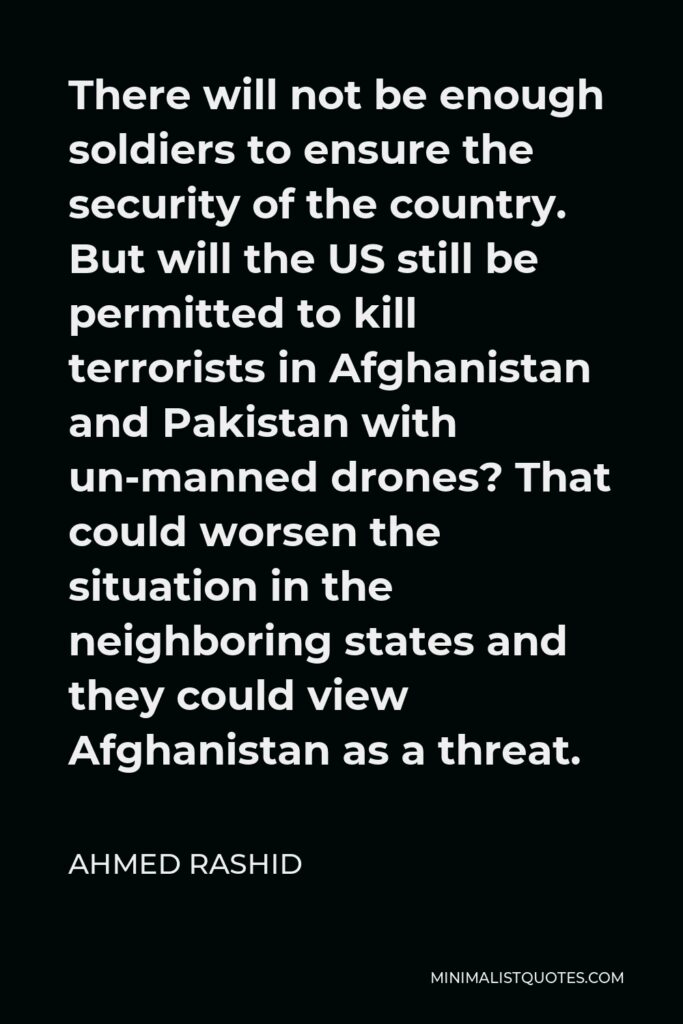

There will not be enough soldiers to ensure the security of the country. But will the US still be permitted to kill terrorists in Afghanistan and Pakistan with un-manned drones? That could worsen the situation in the neighboring states and they could view Afghanistan as a threat.
AHMED RASHID -





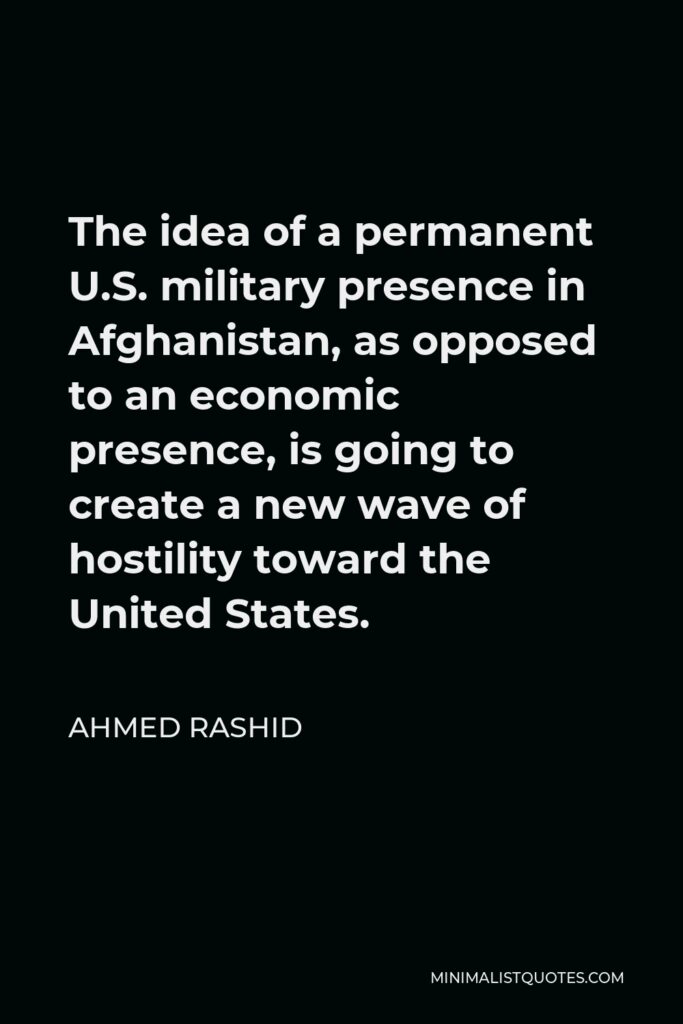

The idea of a permanent U.S. military presence in Afghanistan, as opposed to an economic presence, is going to create a new wave of hostility toward the United States.
AHMED RASHID -





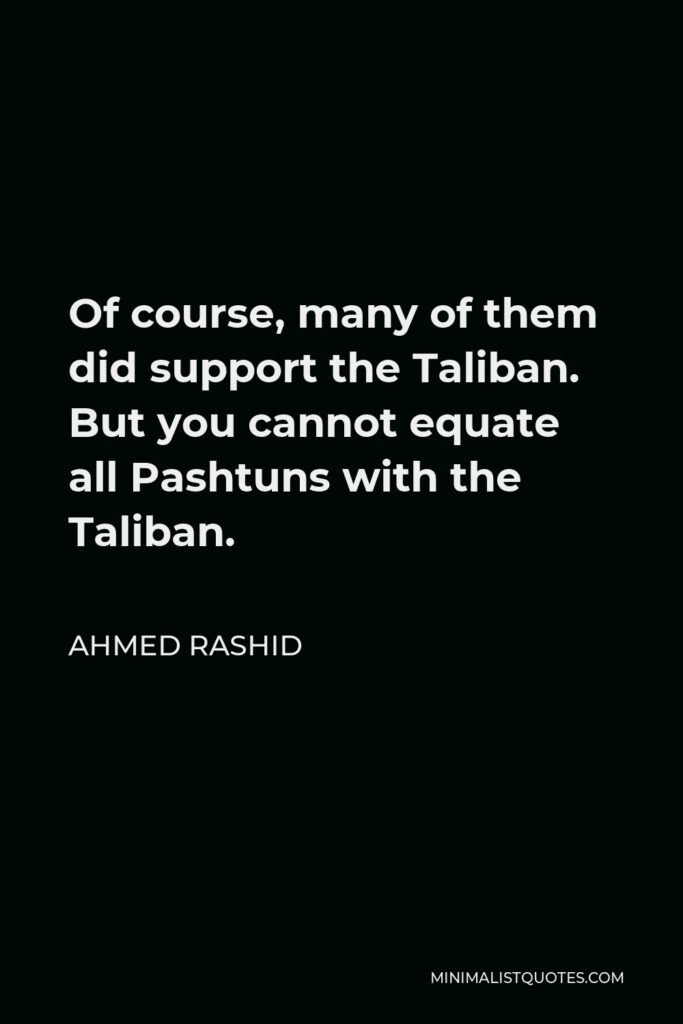

Of course, many of them did support the Taliban. But you cannot equate all Pashtuns with the Taliban.
AHMED RASHID -





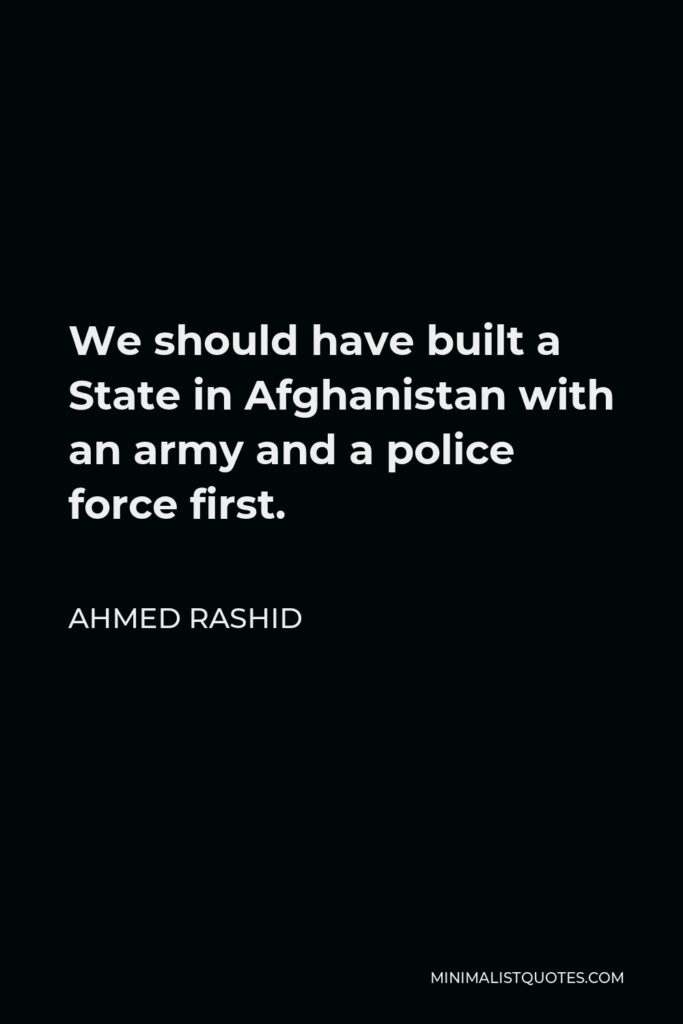

We should have built a State in Afghanistan with an army and a police force first.
AHMED RASHID -





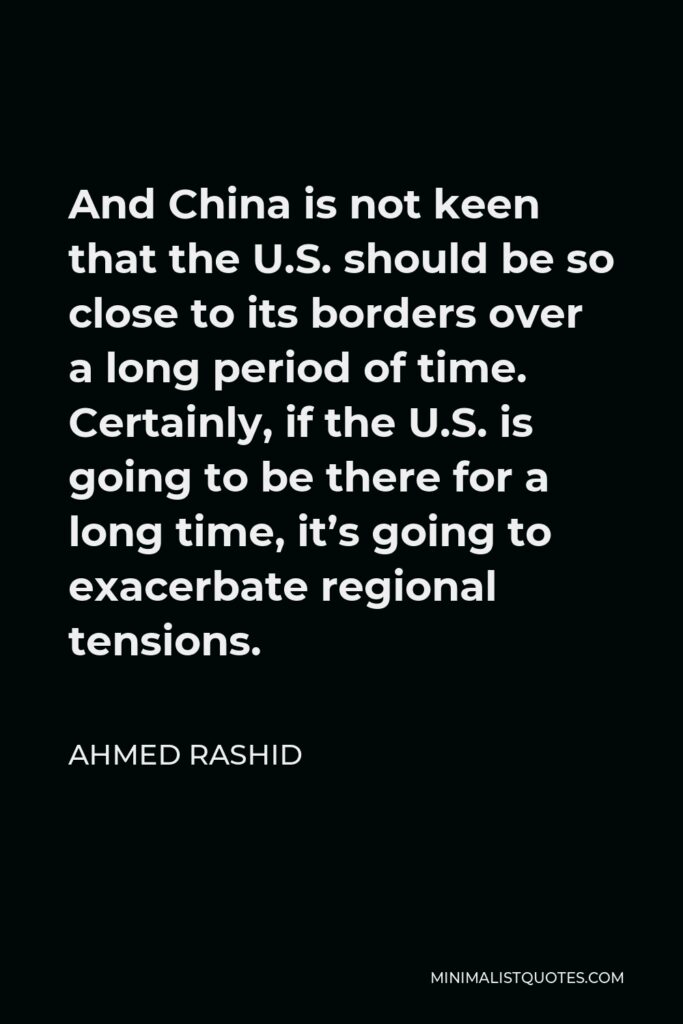

And China is not keen that the U.S. should be so close to its borders over a long period of time. Certainly, if the U.S. is going to be there for a long time, it’s going to exacerbate regional tensions.
AHMED RASHID -





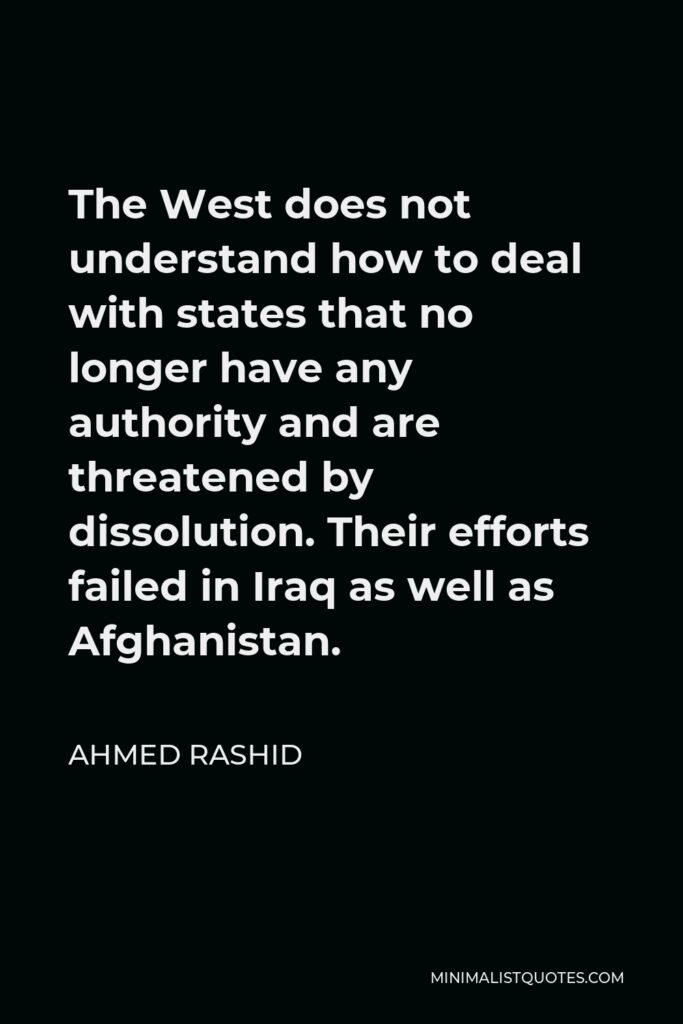

The West does not understand how to deal with states that no longer have any authority and are threatened by dissolution. Their efforts failed in Iraq as well as Afghanistan.
AHMED RASHID -





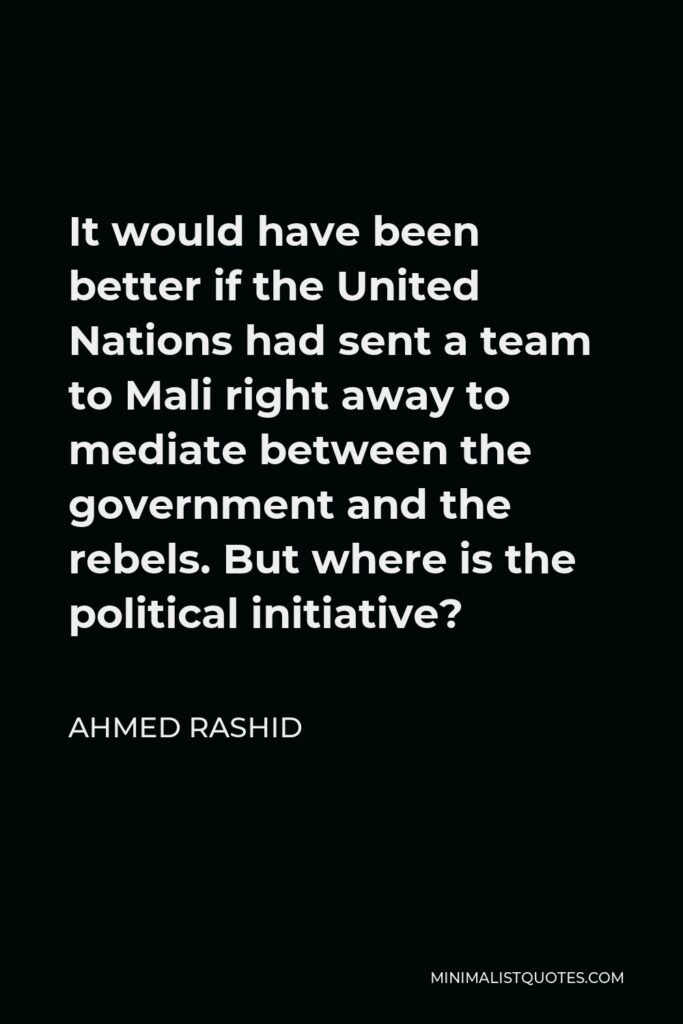

It would have been better if the United Nations had sent a team to Mali right away to mediate between the government and the rebels. But where is the political initiative?
AHMED RASHID -





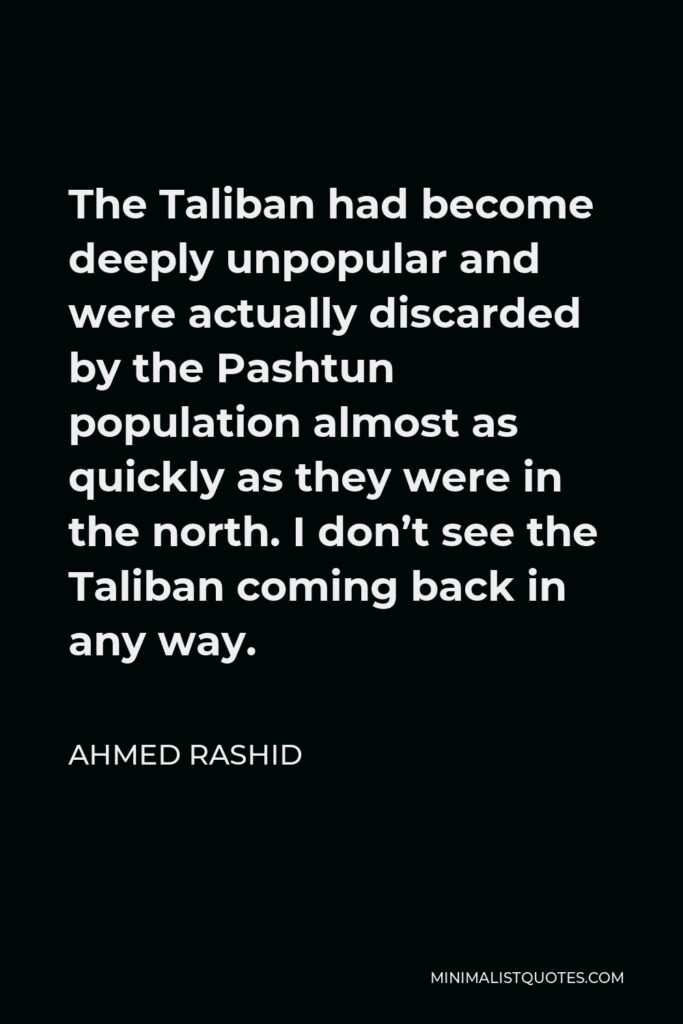

The Taliban had become deeply unpopular and were actually discarded by the Pashtun population almost as quickly as they were in the north. I don’t see the Taliban coming back in any way.
AHMED RASHID -





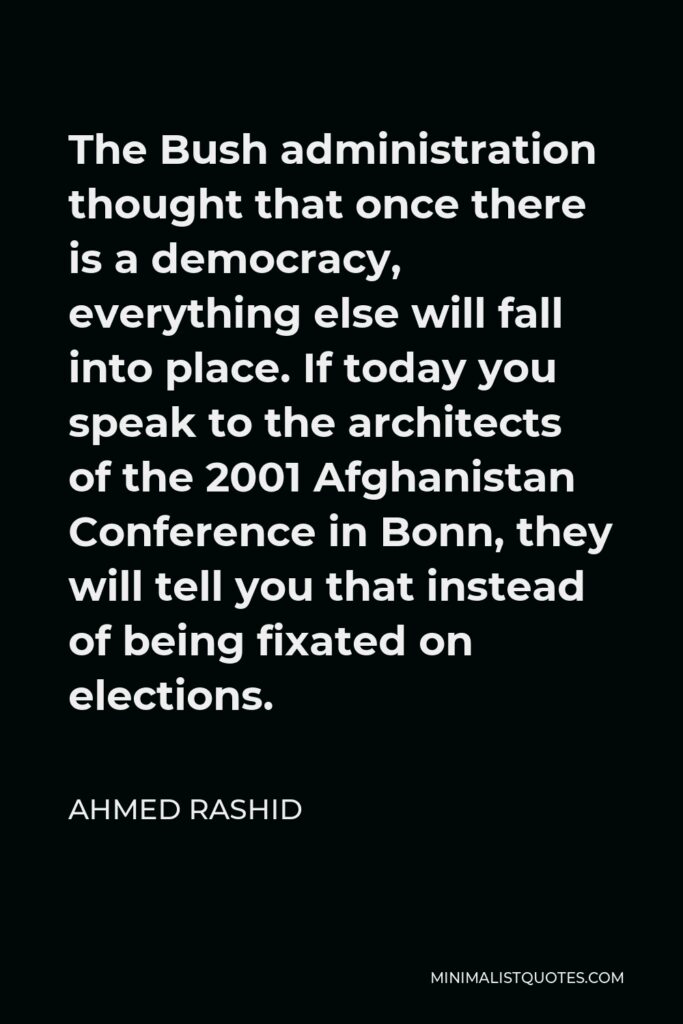

The Bush administration thought that once there is a democracy, everything else will fall into place. If today you speak to the architects of the 2001 Afghanistan Conference in Bonn, they will tell you that instead of being fixated on elections.
AHMED RASHID -





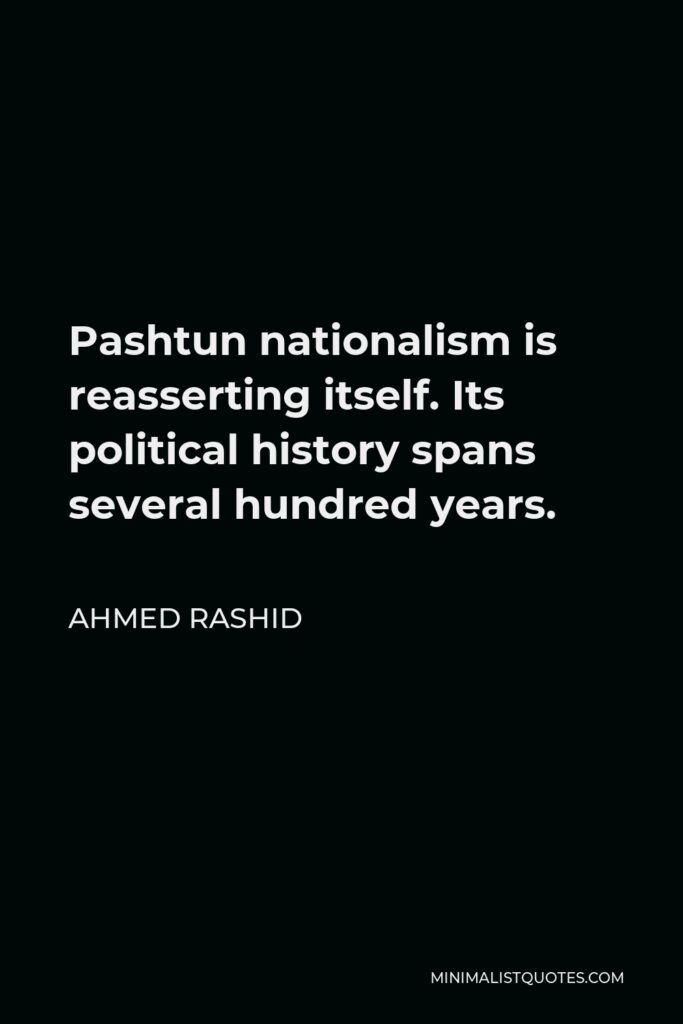

Pashtun nationalism is reasserting itself. Its political history spans several hundred years.
AHMED RASHID -





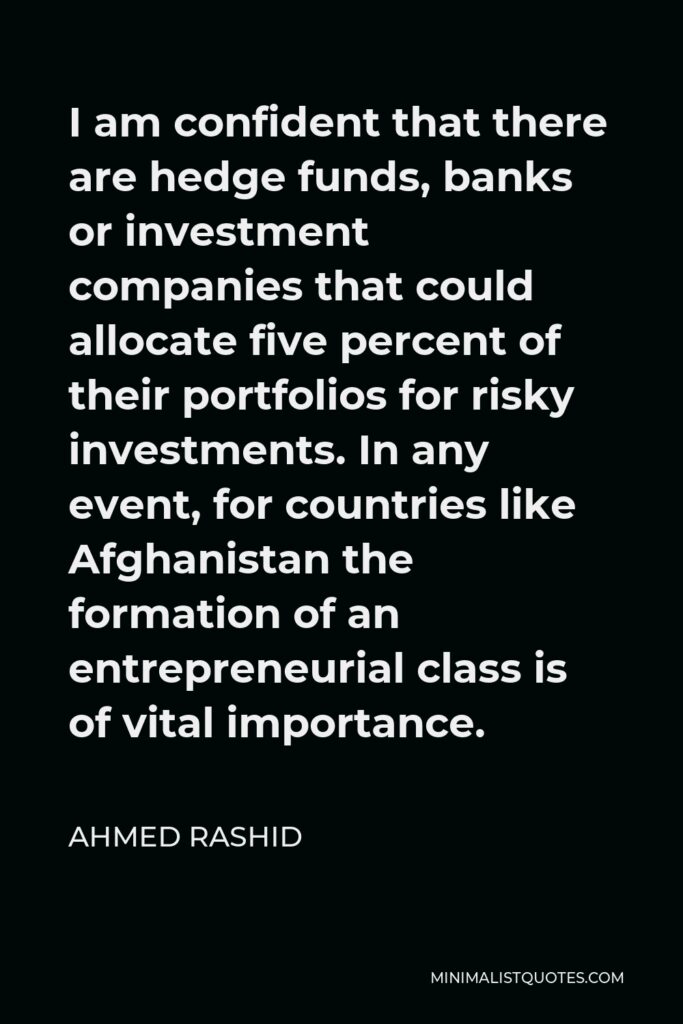

I am confident that there are hedge funds, banks or investment companies that could allocate five percent of their portfolios for risky investments. In any event, for countries like Afghanistan the formation of an entrepreneurial class is of vital importance.
AHMED RASHID -





![Ahmed Rashid Quote - I met a lot of the senior Taliban, and I asked them precisely [about Mullah Omar]. The most common answer was he is humble. And that was very true.](https://minimalistquotes.com/wp-content/uploads/2022/07/i-met-a-lot-of-the-senior-taliban-and-i-asked-them-683x1024.jpg)

I met a lot of the senior Taliban, and I asked them precisely [about Mullah Omar]. The most common answer was he is humble. And that was very true.
AHMED RASHID -





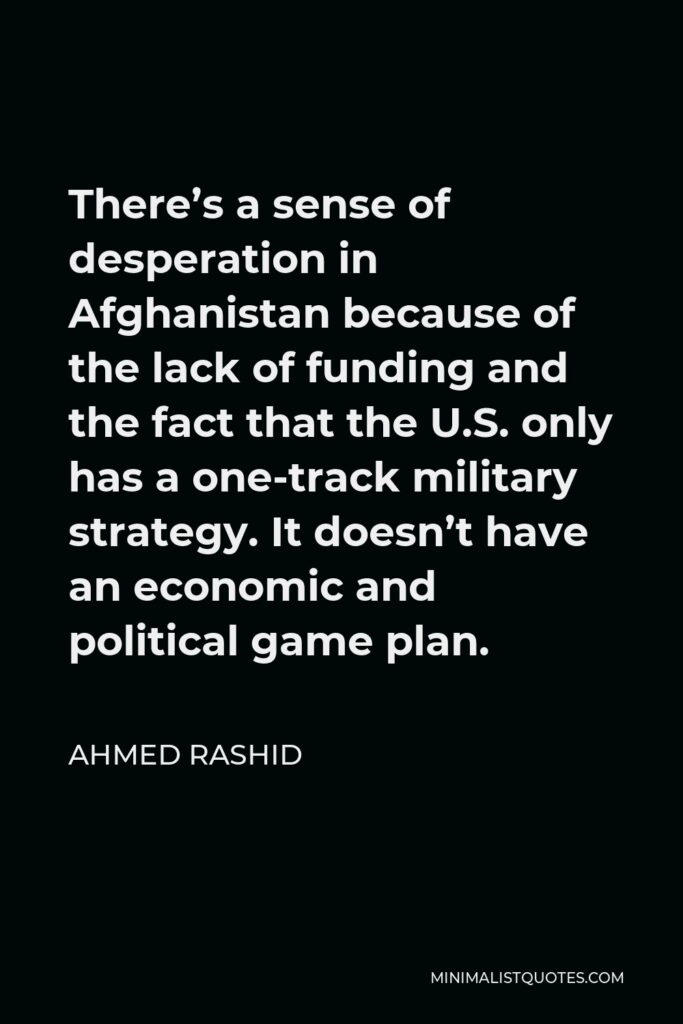

There’s a sense of desperation in Afghanistan because of the lack of funding and the fact that the U.S. only has a one-track military strategy. It doesn’t have an economic and political game plan.
AHMED RASHID -





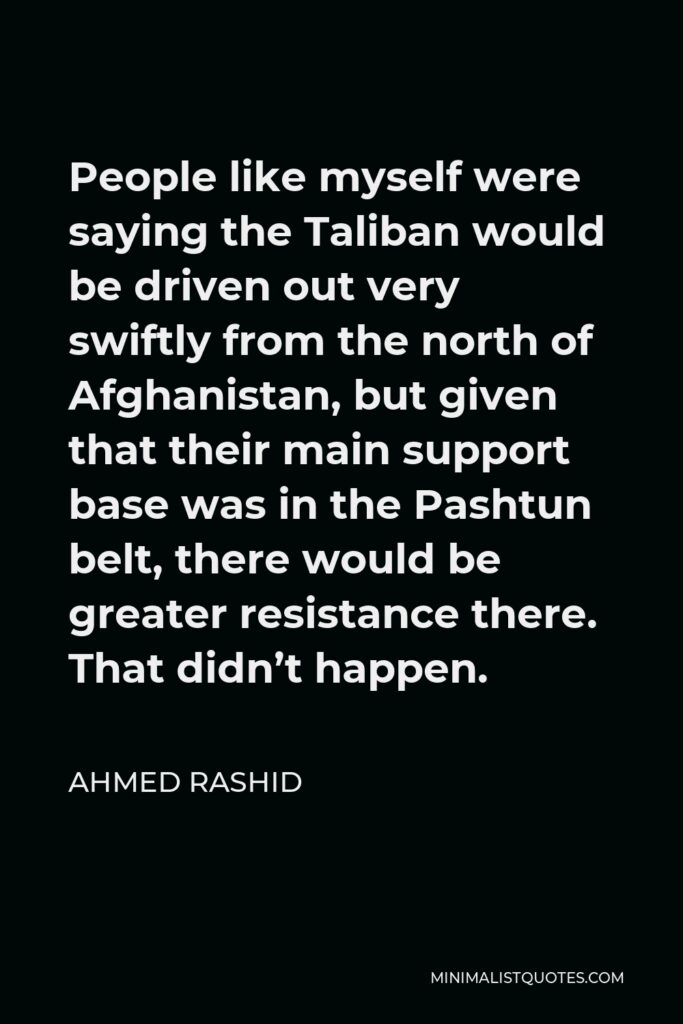

People like myself were saying the Taliban would be driven out very swiftly from the north of Afghanistan, but given that their main support base was in the Pashtun belt, there would be greater resistance there. That didn’t happen.
AHMED RASHID







